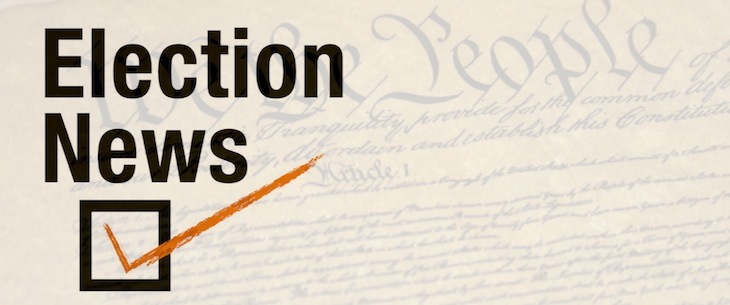Casino amendment makes November ballot; Marijuana amendment needs more signatures
by July 31, 2024 2:48 pm 255 views

Arkansas Secretary of State John Thurston on Wednesday (July 31) certified a casino-related amendment for the November general election ballot, and notified organizers of a marijuana amendment they have another 30 days to gather signatures.
James Knight of Russellville was notified by Thurston that Local Voters in Charge had enough valid signatures to be placed on the November ballot.
Steve Lancaster of Little Rock was notified that Arkansans for Patient Access did not have enough valid signatures for its marijuana use expansion amendment to be placed on the ballot. Thurston did give Arkansans for Patient Access another 30 days from July 31 to submit around 23,000 valid signatures to make the ballot. Thurston said his office counted “no less than 77,000 valid signatures” among the 108,512 originally submitted to his office.
Groups seeking to pass a constitutional amendment must collect 90,704 valid voter signatures, which is equal to 10% of the number of votes cast in the most recent governor’s election, with sufficient numbers in 50 counties. For an initiated act, which is a law passed by voters, supporters must collect 72,563 signatures, or 8% of the votes cast in the most recent governor’s election, with sufficient numbers in 50 counties.
CASINO ISSUE
Local Voters in Charge are behind the constitutional amendment that would nullify a Pope County casino license approved by voters statewide in 2018. The amendment would require future casinos to first to be approved by a majority of voters in a special election in the counties where they would be located.
“In record numbers, Arkansas voters have stated the obvious – casinos should not be forced into communities that do not want them,” said Local Voters in Charge spokesman Hans Stiritz. “Our state’s motto ‘Regnat Populus’ – ‘The People Rule’ – is a promise that that we can fulfill by supporting Local Voter Control of Casino Gambling in November.”
Voter approval of the amendment would create another hurdle for Cherokee Nation Entertainment’s plans to build a casino and resort in Pope County. The Arkansas Racing Commission (ARC) on June 27 issued the casino license in Pope County to Cherokee Nation Entertainment. The action followed several legal moves between competing casino operators that have stalled casino construction in the county.
Natalie Ghidotti, vice chairman of Investing in Arkansas, said organizers of Local Voters in Charge have “repeatedly lied” about what the amendment will do.
“Arkansans should vote ‘NO’ on the extremely misleading casino amendment if it makes the ballot in November. It robs the state, Pope County and Russellville of jobs and revenue to fund essential services that benefit Arkansans – like roads, bridges and education,” Ghidotti said in a statement. “This ballot measure is nothing but a ploy by the Choctaw Nation of Oklahoma – a rejected casino operator – to change the Arkansas constitution to protect its business interests in another state. This amendment will eliminate the Pope County casino license that has already been awarded by the state to the Legends Resort & Casino project in Russellville – a project that is very much in development and has support of the community and local officials – including mayors, the county judge and the Quorum Court.”
MARIJUANA ISSUE
Arkansans for Patient Access seek to make several changes to an amendment passed by voters in 2016 that legalized medical marijuana. Those would include allowing access based on any medical need rather than the current list of qualifying ailments; allowing patients and designated adult caregivers to grow up to 14 marijuana plants; and allowing physician assistants, nurse practitioners and pharmacists to certify medical marijuana cards.
The amendment also would allow patients to be certified by visiting a medical practitioner via telemedicine. It also would make medical marijuana available to individuals who are not Arkansas residents. It would remove application fees for identification cards and would lengthen the expiration date for new cards from one year to three.
The amendment also includes a trigger law allowing adults to possess an ounce of cannabis if marijuana is no longer listed on the federal government’s Schedule of Controlled Substances or if Congress changes the law so that marijuana possession is no longer a federal crime.
